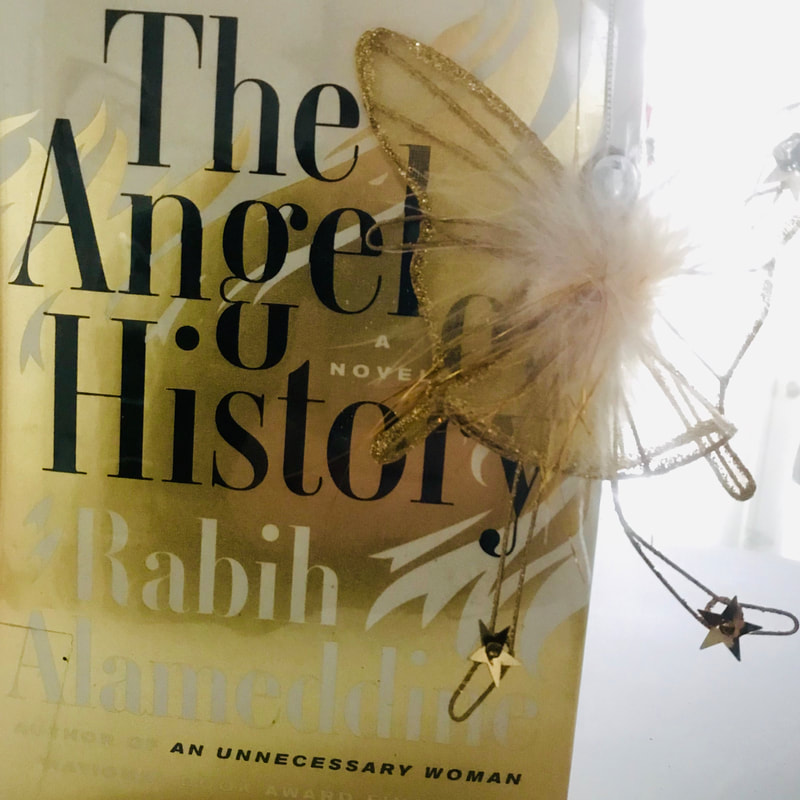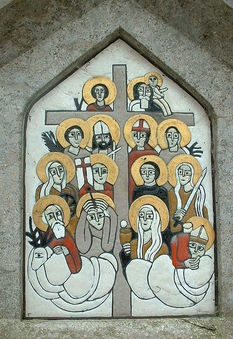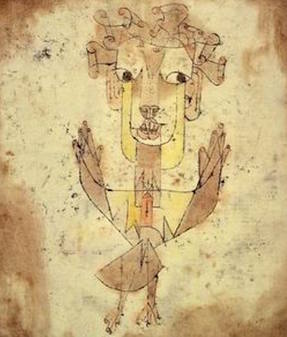|
by Rana Asfour THE BLURB: Set over the course of one night in the waiting room of a psych clinic, 'The Angel of History' by Rabih Alameddine follows Yemeni-born poet Jacob as he revisits the events of his life, from his maternal upbringing in an Egyptian whorehouse to his adolescence under the aegis of his wealthy father and his life as a gay Arab man in San Francisco at the height of AIDS. Hovered over by the presence of alluring, sassy Satan who taunts Jacob to remember his painful past and dour, frigid Death who urges him to forget and give up on life, Jacob is also attended to by 14 saints. Set in Cairo and Beirut; Sana'a, Stockholm, and San Francisco; Alameddine gives us a charged philosophical portrait of a brilliant mind in crisis. This is a profound, philosophical and hilariously winning story of the war between memory and oblivion we wrestle with every day of our lives. BOOKFABULOUS VERDICT: The premise of this 2016 book by Alameddine is brilliant based around the idea of lest we forget, hence the title which is based on Walter Benjamin's interpretation of a Paul Klee painting named 'Angelus Novus' which Alameddine said in an NPR interview he chose because people in the present are always urged to turn away from the past in a bid to forget and forge ahead therefore becoming unaware of the destruction each and every one leaves in their wake. Main character Jacob (Ya'coub in Arabic) is a gay poet who has lost many of his friends, including the love of his life to AIDS in the 1980s. The novel is a documentation of not only a gay man's struggle to regain his footing long after almost all of his AIDS-afflicted friends have died, but it is also the story of an Arab Yemeni man grappling with America's perception of Arabs and the reasoning behind its interference in the Middle East. As a form of historical fiction this gave a bird's eye view of what it was like during the height of the AIDS epidemic from a writer who lived in those times. The novel is set in San Fransisco in the 1980s where the author himself lived and saw many of the people he knew die of AIDS. The novel though is not biographical in any way as the author points out in several interviews but the fact that he was there at the time gives the description of events and places a solid authenticity. The reader feels with the characters as they suffer the indignities of dying and later grieves their loss. AIDS however is not the only theme in a book rife with thematic subjects. Jacob is son to a Muslim Yemeni whore who moves to Cairo and later in the novel disappears in the most holy of places, and his father is an affluent Lebanese with little time or care for an illegitimate son he is quick to dump in an orphanage. Jacob's only childhood friends are the Fourteen Holy Helpers, and he is the protegee of Satan and his rival Death who both compete for Jacob's attention. He is also an American Yemeni grieving a Middle East in the aftermath of a failed Arab Spring wallowing in the pain that comes with not fitting anywhere. To top it off he is a blocked up poet who in suffrage has turned to prose. No wonder we meet Jacob on the night he is checking himself into a psychotic clinic in a bid to get away from every one and every thing. The fragmented writing style is quite cumbersome and a bit show-offy with its big dictionary words but that said, there is profound satisfaction when all the dots join and one starts to 'get it' but be warned that this happens only after readers wade their way through raw, at times ugliness-infused, chapters designed to hem-in readers into 'seeing' - One particular chapter I struggled with included a caged Arab kept as a pet in an affluent gay couple's home - In that the novel relies on the suggestion that 'once something is seen, it can never be unseen' and it works. All said, this is not a book for anyone who easily takes offence to writings on religion, politics or social issues and particularly queer literature, although the argument could also be that it is exactly what everyone should be reading. READ 'THE ANGEL OF HISTORY' BY RABIH ALAMEDDINE IF YOU ENJOYED:
'The Hakawati' by Rabih Alameddine 'Midnight's Children' by Salman Rushdie 'Frankenstein in Baghdad' by Ahmed Saadawi
0 Comments
Your comment will be posted after it is approved.
Leave a Reply. |
Archives
March 2021
|







 RSS Feed
RSS Feed
